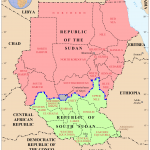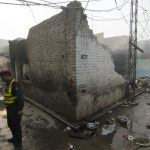By Wall Street Journal –
By Nancy A. Youssef, Vivian Salama and Michael C. Bender —Jared Malsin contributed to this article.
Quip drew attention to uncomfortable facet of U.S.-Egypt relationship.
Inside a room of the ornately decorated Hotel du Palais during last month’s Group of Seven summit in Biarritz, France, President Trump awaited a meeting with Egyptian President Abdel Fattah Al Sisi.
“Where’s my favorite dictator?” Mr. Trump called out in a voice loud enough to be heard by the small gathering of American and Egyptian officials. Several people who were in the room at the time said they heard the question.
The witnesses said they believed the president made the comment jokingly, but said his question was met by a stunned silence.
It couldn’t be determined whether Mr. Sisi was present or heard the remark.
The White House declined to comment. Egyptian officials couldn’t be reached for comment.
Even if lighthearted, Mr. Trump’s quip drew attention to an uncomfortable facet of the U.S.-Egypt relationship.
Mr. Sisi has drawn criticism for his authoritarian rule since taking power following a 2013 coup. Under Mr. Sisi, Egyptian authorities have been accused of detaining thousands of political opponents, of torturing and killing prisoners and of stymying political opposition, according to reports by the United Nations, U.S. State Department and nongovernmental groups.
The White House hasn’t publicly admonished the Egyptian government for its human-rights record. Egypt has defended its actions, saying it is fighting extremists.
Mr. Trump has extolled his ties to other world leaders known for authoritarian methods, including Russian President Vladimir Putin, Turkish President Recep Tayyip Erdogan, North Korean leader Kim Jong Un and Chinese President Xi Jinping.
At this year’s G-7 summit, at least 10 U.S. and three Egyptian officials were awaiting Mr. Sisi’s arrival on the morning of Aug. 26 when the president made his remark.
Among those in attendance were Treasury Secretary Steven Munchin and then-national security adviser John Bolton, who since has resigned. Others included Larry Kudlow, assistant to the president for economic policy; Rob Blair, a senior adviser to the White House chief of staff and an interpreter.
Egyptian officials in the room included Minister of Foreign Affairs Sameh Shoukry and Abbas Kamel, Egypt’s chief of the General Intelligence Service, the witnesses said.
Within minutes of the quip, Mr. Sisi met Mr. Trump and reporters were allowed in. Mr. Trump, among other comments, celebrated his relationship with Mr. Sisi, noting that the two leaders had begun talking with each other soon after Mr. Trump won the presidential election in 2016.
“We understood each other very well. He’s a very tough man, I will tell you that. But he’s also a good man, and he’s done a fantastic job in Egypt. Not easy,” said Mr. Trump, who in 2017 hosted Mr. Sisi’s first White House visit since Mr. Sisi took power. Constitutional amendments, passed by parliament earlier this year, allow Mr. Sisi to serve multiple terms.
In a press release after the bilateral meeting, Egypt gave no hint of any tension.
“President Trump expressed his appreciation for Egypt and President El Sisi as well as the development that Egypt has witnessed to realize security and stability as well as growth, in spite of regional instability,” the Egyptian presidency’s office said in a statement afterward.
________________________
Photo Credit: See News Egypt
https://www.wsj.com/articles/trump-awaiting-egyptian-counterpart-at-summit-called-out-for-my-favorite-dictator-11568403645?shareToken=ste116433671ca4f319a2dbceb766123be




